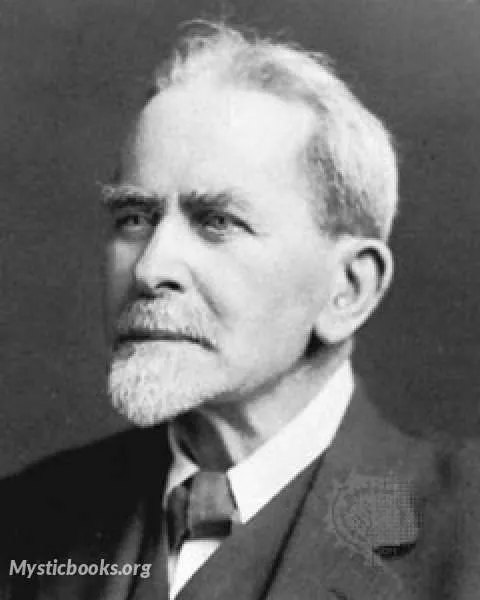
Timeline
Title
Country/Nationality
James Frazer
Sir James George Frazer was a Scottish social anthropologist and folklorist influential in the early stages of the modern studies of mythology and comparative religion. His most famous work, The Golden Bough (1890), documents and details the similarities among magical and religious beliefs around the world. Frazer posited that human belief progressed through three stages: primitive magic, replaced by religion, in turn replaced by science.
He was born on 1 January 1854 in Glasgow, Scotland, the son of Daniel F. Frazer, a chemist, and his wife, Katherine Brown.
Frazer attended school at Springfield Academy and Larchfield Academy in Helensburgh. He studied at the University of Glasgow and Trinity College, Cambridge, where he graduated with honours in classics (his dissertation was published years later as The Growth of Plato's Ideal Theory) and remained a Classics Fellow all his life. From Trinity, he went on to study law at the Middle Temple, but never practised.
Four times elected to Trinity's Title Alpha Fellowship, he was associated with the college for most of his life, except for a year, 1907–1908, spent at the University of Liverpool. He was knighted in 1914, and a public lectureship in social anthropology at the universities of Cambridge, Oxford, Glasgow and Liverpool was established in his honour in 1921. He was, if not blind, then severely visually impaired from 1930 on. He and his wife, Lilly, died in Cambridge, England, within a few hours of each other. He died on 7 May 1941. They are buried at the Ascension Parish Burial Ground in Cambridge.
Frazer is commonly interpreted as an atheist in light of his criticism of Christianity and especially Roman Catholicism in The Golden Bough. However, his later writings and unpublished materials suggest an ambivalent relationship with Neoplatonism and Hermeticism.
In 1896 Frazer married Elizabeth "Lilly" Grove, a writer whose family was from Alsace. She would later adapt Frazer's Golden Bough as a book of children's stories, The Leaves from the Golden Bough.
The study of myth and religion became his areas of expertise. Except for visits to Italy and Greece, Frazer was not widely travelled. His prime sources of data were ancient histories and questionnaires mailed to missionaries and imperial officials all over the globe. Frazer's interest in social anthropology was aroused by reading E. B. Tylor's Primitive Culture (1871) and encouraged by his friend, the biblical scholar William Robertson Smith, who was comparing elements of the Old Testament with early Hebrew folklore.
Frazer was the first scholar to describe in detail the relations between myths and rituals. His vision of the annual sacrifice of the Year-King has not been borne out by field studies. Yet The Golden Bough, his study of ancient cults, rites, and myths, including their parallels in early Christianity, continued for many decades to be studied by modern mythographers for its detailed information.
The first edition, in two volumes, was published in 1890; and a second, in three volumes, in 1900. The third edition was finished in 1915 and ran to twelve volumes, with a supplemental thirteenth volume added in 1936. He published a single-volume abridged version, largely compiled by his wife Lady Frazer, in 1922, with some controversial material on Christianity excluded from the text. The work's influence extended well beyond the conventional bounds of academia, inspiring the new work of psychologists and psychiatrists. Sigmund Freud, the founder of psychoanalysis, cited Totemism and Exogamy frequently in his own Totem and Taboo: Resemblances Between the Psychic Lives of Savages and Neurotics.
The symbolic cycle of life, death and rebirth which Frazer divined behind myths of many peoples captivated a generation of artists and poets. Perhaps the most notable product of this fascination is T. S. Eliot's poem The Waste Land (1922).
Frazer's pioneering work has been criticised by late-20th-century scholars. For instance, in the 1980s the social anthropologist Edmund Leach wrote a series of critical articles, one of which was featured as the lead in Anthropology Today, vol. 1 (1985). He criticised The Golden Bough for the breadth of comparisons drawn from widely separated cultures, but often based his comments on the abridged edition, which omits the supportive archaeological details. In a positive review of a book narrowly focused on the cultus in the Hittite city of Nerik, J. D. Hawkins remarked approvingly in 1973, "The whole work is very methodical and sticks closely to the fully quoted documentary evidence in a way that would have been unfamiliar to the late Sir James Frazer." More recently, The Golden Bough has been criticized for what are widely perceived as imperialist, anti-Catholic, classist and racist elements, including Frazer's assumptions that European peasants, Aboriginal Australians and Africans represented fossilized, earlier stages of cultural evolution.
Another important work by Frazer is his six-volume commentary on the Greek traveller Pausanias' description of Greece in the mid-2nd century AD. Since his time, archaeological excavations have added enormously to the knowledge of ancient Greece, but scholars still find much of value in his detailed historical and topographical discussions of different sites, and his eyewitness accounts of Greece at the end of the 19th century.
Books by James Frazer
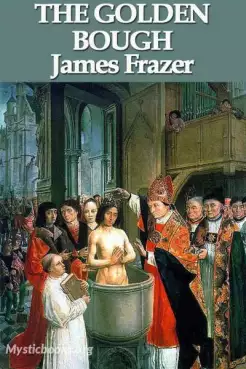
The Golden Bough
The Golden Bough: A Study in Comparative Religion (retitled The Golden Bough: A Study in Magic and Religion in its second edition) is a wide-ranging, comparative study of mythology and religion, written by the Scottish anthropologist Sir James George...
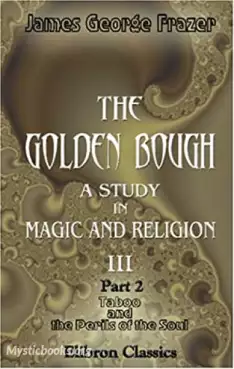
The Golden Bough. A Study in Magic and Religion. Part 2. Taboo and the Perils of the Soul
The third volume of The Golden Bough. The term Taboo is one of the very few words which the English language has borrowed from the speech of savages. This volume examines the underlying moral code of many societies, both primitive and medieval, and w...
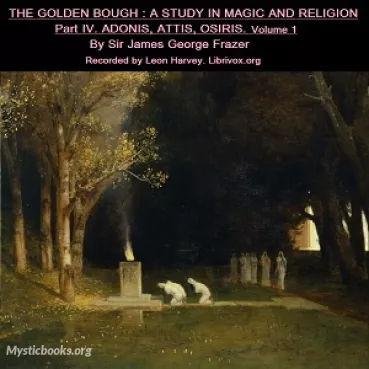
The Golden Bough. A Study in Magic and Religion. Part 4. Adonis Attis Osiris. Volume 1
It is a seminal work of comparative mythology and religion by James Frazer. Originally published in 1914, this book is widely regarded as a classic of its genre and has been influential in shaping the field of anthropology and religious studies. In...
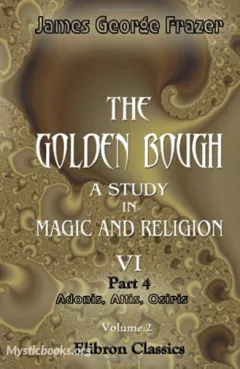
The Golden Bough. A Study in Magic and Religion. Part 4. Adonis Attis Osiris. Volume 2
It is a scholarly book that explores the similarities and differences between the mythologies and rituals of various ancient cultures, including Greek, Roman, and Egyptian. It was first published in 1914 and has since become a classic in the field of...
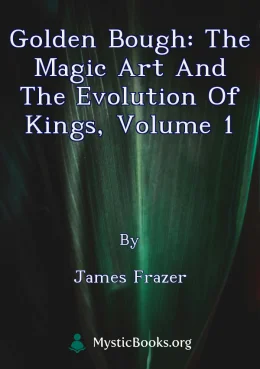
Golden Bough: The Magic Art and the Evolution of Kings, Volume 1
The Golden Bough: The Magic Art and the Evolution of Kings is a foundational work in the field of anthropology, examining the development of religious beliefs and rituals across cultures. Sir James Frazer's extensive research delves into the intercon...
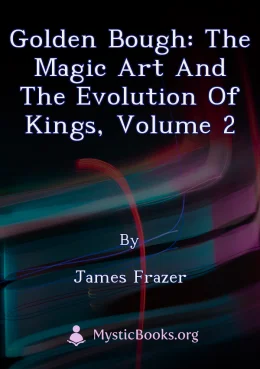
Golden Bough: The Magic Art and the Evolution of Kings, Volume 2
The second volume in Frazer's seminal 12-volume set on anthropology and traditional systems of belief explores the superstition and magical purpose of kings. The discussion expands to include the worship of trees, vegetation, fire, and sacred marriag...
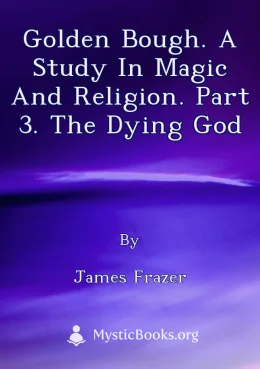
Golden Bough. A Study in Magic and Religion. Part 3. The Dying God
The third part of James Frazer's monumental "The Golden Bough" explores the practice of human sacrifice and the mortality of gods in various cultures. Frazer investigates the reasons behind the ritual killing of divine kings and spirits, as well as t...
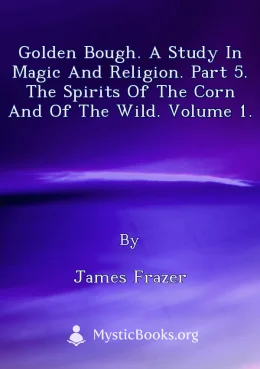
Golden Bough. A Study in Magic and Religion. Part 5. The Spirits Of The Corn And Of The Wild. Volume 1.
This volume delves into the intricate relationship between agriculture and religious beliefs. Frazer explores the widespread concept of the dying and reviving god, a figure representing the cycle of life and death inherent in the agricultural process...
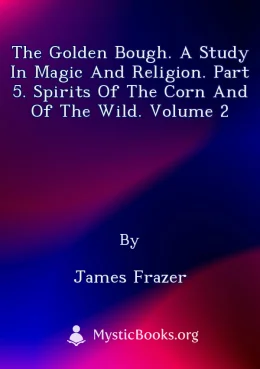
The Golden Bough. A Study in Magic and Religion. Part 5. Spirits Of The Corn And Of The Wild. Volume 2
The eighth volume in The Golden Bough collection, and second volume of The Spirits of the Corn and of the Wild. The investigations into the superstitions and rituals to propitiate fertility in primitive agriculture are expanded further to cover the l...
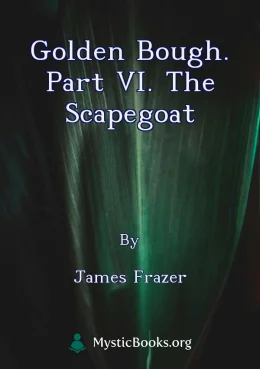
Golden Bough. Part VI. The Scapegoat
The Scapegoat, the ninth book in Sir James Frazer's monumental work The Golden Bough, delves into the origins and evolution of the concept of the scapegoat in human societies. Frazer explores the widespread belief that misfortunes and evils can be tr...